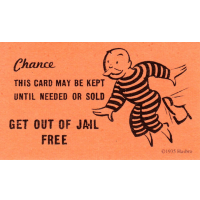Big Corporations Accused of Crimes Usually Pay Fines while Avoiding Jail Time

The U.S. Department of Justice over the course of two presidential administrations has increasingly punished corporations with fines, while avoiding criminal prosecutions.
Over the last 12 years, the government has settled numerous cases with businesses charged with corruption and fraud, levying fines totaling $36 billion.
But rarely have executives of the accused corporations been subjected to criminal proceedings and threats of jail time.
The latest example was fashion company Ralph Lauren, which paid $1.6 million in fines to the Justice Department (DOJ) and the Securities and Exchange Commission (SEC) to settle allegations that officials paid bribes to Argentina last decade to facilitate the importation of products and avoid customs inspections. One of the reasons that the company was not prosecuted for its violation of the Foreign Corrupt Practices Act, according to the SEC, was that it was cooperative, thereby saving the agency time in its investigation of the crime.
The common practice in recent years has been for federal prosecutors to use non-prosecution agreements (NPAs), deferred prosecution agreements (DPAs) and consent decrees in seeking punishment for corporate lawbreakers. This usually involves a statement of facts agreed to by both the government and the company, whereby the company may neither admit nor deny the charges against it. The arrangement also includes a fine levied against the culpable party, and the assignment of a federal observer to monitor the company to ensure the crime isn’t repeated. What’s not included is any form of legal prosecution that would result in jail time.
Legal experts say that the agreements permit company officials to buy their way out of going to prison.
“DPAs and NPA’s are like the tree limbs and rubbish that prevent the water going over a dam,” Mike Koehler, a professor at the Southern Illinois School of Law, told those attending the Washington, DC conference (pdf) “Neither Admit Nor Deny: Corporate Crime in the Age of Deferred Prosecutions, Consent Decrees, Whistleblowers & Monitors."
“DOJ has championed an alternative reality that has become problematic: it sends the message that justice can be bought,” Koehler added.
-Noel Brinkerhoff, Danny Biederman
To Learn More:
Neither Admit Nor Deny: Big Business Allowed To Pay Millions to Avoid Jail (by Pratap Chatterjee, Common Dreams)
2012 Year-End Update on Corporate Deferred Prosecution and Non-Prosecution Agreements (by Joseph Warin and Jeremy Joseph, Harvard Law School Forum on Corporate Governance and Financial Regulation)
Ralph Lauren Gets Not One, But Two FCPA Non Prosecution Agreements (Corporate Crime Reporter)
Stop Using Deferred and Non Prosecution Agreements in Major Corporate Crime Cases (Corporate Crime Reporter)
The Untouchables (Frontline, PBS)
Justice Dept. Mistakes Slapping Wall Street Wrists for True Punishment for Fraud (by Matt Bewig, AllGov)
Corporations Offset Fines and Penalties with Tax Write-Offs (by Matt Bewig, AllGov)
Justice Dept. Defends Not Prosecuting Corporate Leaders for White-Collar Crime (by Noel Brinkerhoff and David Wallechinsky, AllGov)
- Top Stories
- Unusual News
- Where is the Money Going?
- Controversies
- U.S. and the World
- Appointments and Resignations
- Latest News
- Trump Renames National Football League National Trump League
- Trump to Stop Deportations If…
- Trump Denounces World Series
- What If China Invaded the United States?
- Donald Trump Has a Mental Health Problem and It Has a Name






Comments